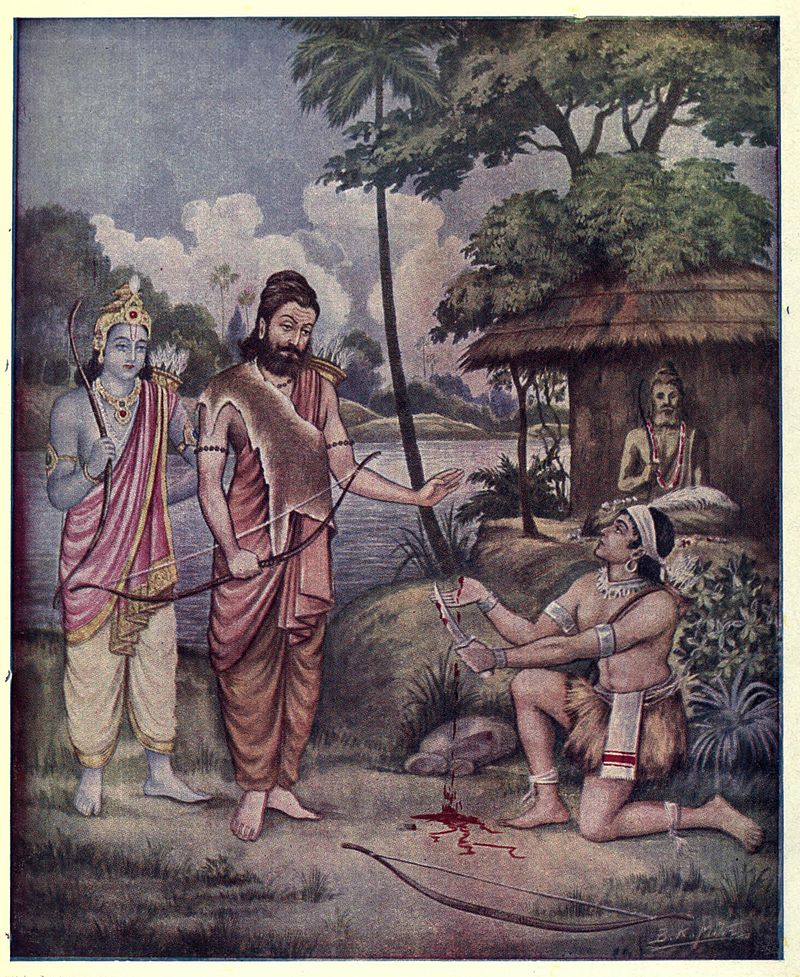
In the days of yore, when the stories of Mahabharata were just coming into being, there lived a young lad named Ekalavya. Hailing from a community of jungle tribes, Ekalavya stood out from the rest of his people for his unique ambitions. It was his ardent wish to learn archery under the deft guidance of Dronacharya, a well-known master of the Pandavas and Kauravas.
Unmindful of the stigma that was associated with his background, an eager Ekalavya approached Drona and bowed. With great humility he said, “O Great One! I am Ekalavya, the son of Vyatraj Hiranyadhanus, from the forests of Hastinapura”. On hearing this, the sage was quite surprised. Wondering what a tribal boy would want from him, he curiously asked, “What brings you here Ekalavya?” The boy replied, “Pray, Sir, I would like to become a great archer. Would you please accept me as your disciple?”
Now in those days when the Vedic Caste System was widespread, such circumstances were unheard of. It was unthinkable for a person from the lowest Shudra caste to approach a Brahmin who constituted the highest caste.
Hence, Drona turned him away by saying, “I cannot teach a Shudra boy. This is a gurukul for the royal people and you have no place amongst them”. Humiliated, Ekalavya sadly left the premises. However, this did not impair his zeal to be the greatest archer. He was iron-willed. He went back to the forest and constructed a statue of the only guru he revered. After placing it under an old sturdy tree, he paid obeisance to it. With Drona’s statue as the guiding knowledge, Ekalavya relentlessly practised archery in the forest.
Many years passed and Ekalavya, by setting a strict, disciplined schedule for himself, blossomed into an exceptional archer. His skills were so accurate that he even surpassed the prowess of Drona’s best pupil, Arjuna. As Ekalavya had kept to himself during all those years of training, his skills remained unknown to Drona and the rest of the people.
One day, when Drona and his students were walking through the jungle, they came across a very strange sight. A dog with a series of arrows around its mouth appeared to have lost its barking ability. When it was found to be uninjured, the company realised that it was the stroke of a highly accomplished archer. Dazed, they were all consumed by a common question.
“Who is so great as to perfectly cripple a creature without hurting it?”
After thoroughly searching the forest, they chanced upon a tough-looking man, fervently shooting one arrow after another. No sooner had Ekalavya noticed the presence of royal people, than he rushed to greet them. Upon seeing Dronacharya, he immediately bowed and introduced himself.
Not able to believe that the boy he had rejected had grown to be so great, Drona praised him and asked, “Ekalavya, under whose guidance did you learn to master the art?” Delighted, Ekalavya replied, “Under yours, Master” and showed him the mud statue. This angered the rest of his students, especially Arjuna. The idea of a low-class hunter excelling in archery made him jealous. Also, this went against Drona’s promise to make Arjuna the best archer in the entire kingdom.
Acknowledging this, Drona approached Ekalavya and loudly said, “You claim that I am your teacher, yet you haven’t given me my gurudakshan!” With a gracious smile, Ekalavya replied, “Ask me for anything Master, and I shall place it at your disposal”.
Satisfied with Ekalavya’s response, Drona then proceeded to ask something that shocked everyone who was present. “Ekalavya, I demand the thumb of your right hand as my gurudakshan”. Unwilling to defy his guru’s request, Ekalavya promptly took a knife and cut off his finger, fully knowing that he’d never be able to practise archery again.
This act of immense valour and respect touched everyone’s hearts, and despite his guru’s cruel and unfair demand, Ekalavya continued to pay him his respects.
True greatness of self doesn’t come with mere interest in one’s endeavours. It has to be fuelled with immense hard-work and an unflinching dedication and respect for one’s teachers. A convergence of respect and discipline is what our personality should reflect.
Informative site. Great start👍
Thank you
Great info👍